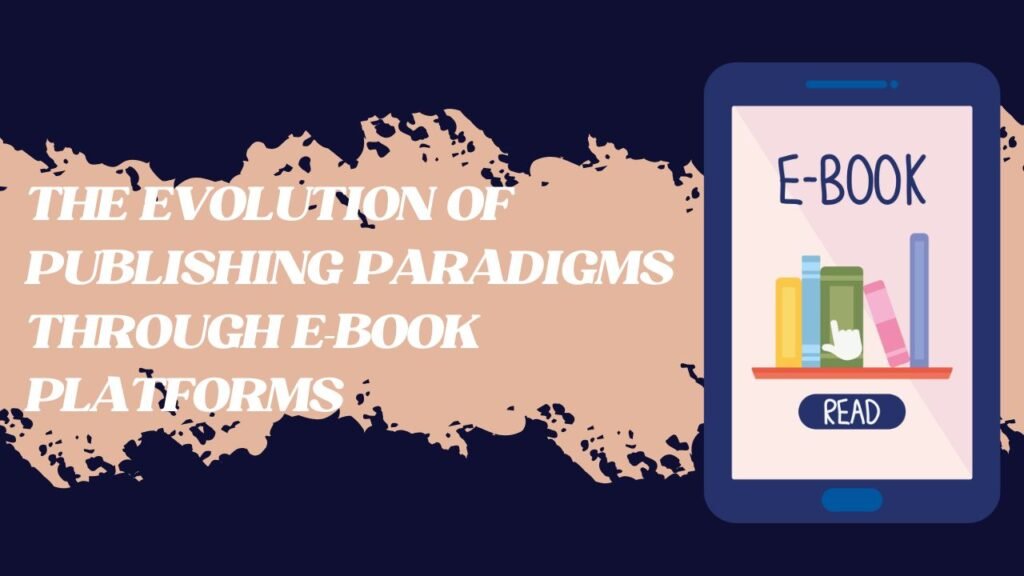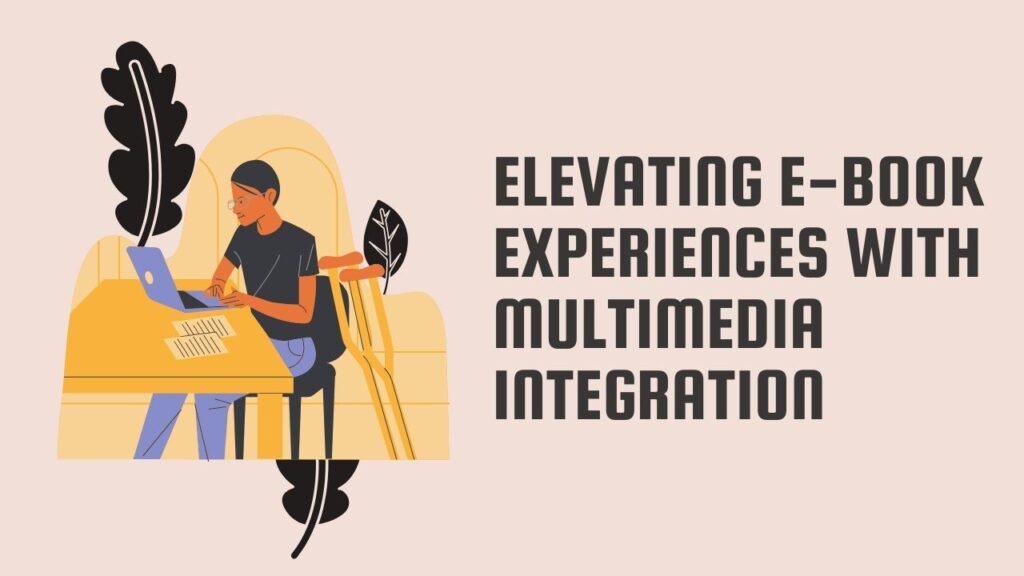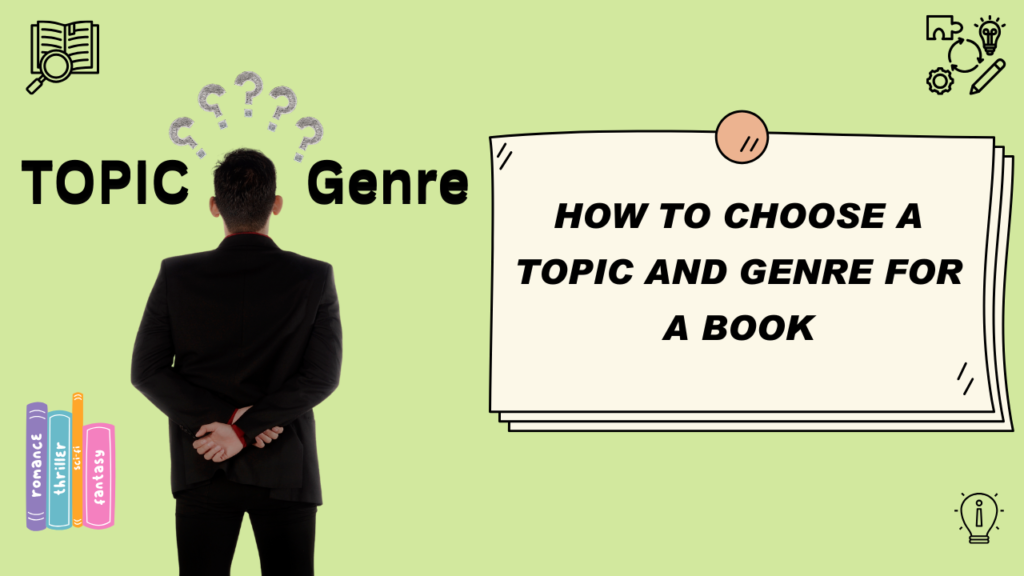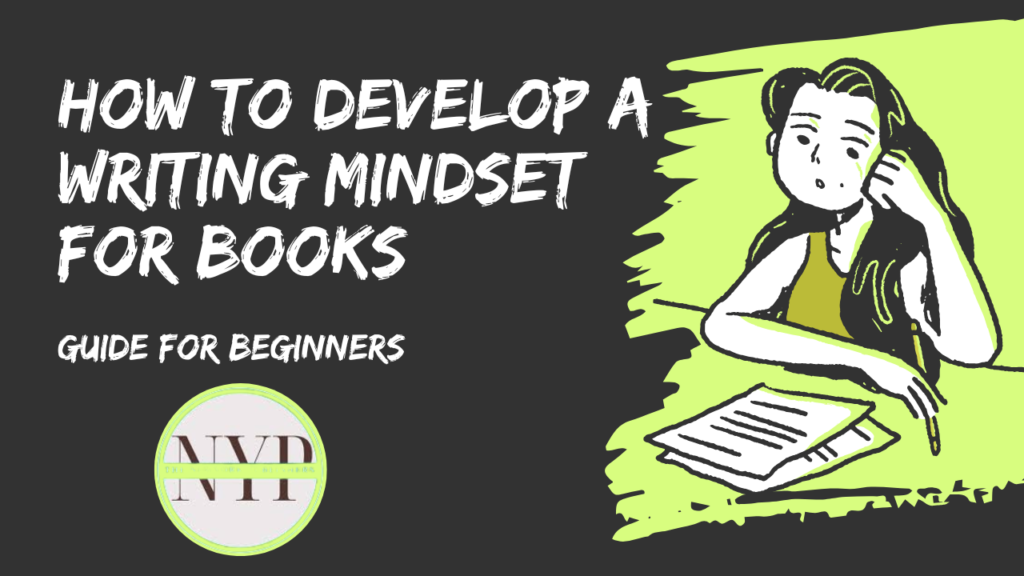
In today’s rapidly evolving digital landscape, the traditional publishing industry is undergoing a profound transformation. One of the most significant shifts is the rise of e-book publishing services, which are empowering authors in unprecedented ways. The New York Publishers write this comprehensive guide, that you’ll delve into the intricacies of eBook publishing and explore how it is reshaping the literary landscape. From decoding the digital realm to maximizing reach and embracing sustainable practices, we’ll unravel the multitude of opportunities that e-book publishing presents for authors.
A Comprehensive Look into E-Book Publishing Services
The advent of eBook publishing services has revolutionized the way authors bring their works to the masses. Unlike traditional publishing models that often involve lengthy processes and gatekeepers, e-book platforms offer a direct pathway for authors to reach readers worldwide. These services provide a range of tools and resources, from formatting assistance to distribution channels, making the publishing process more accessible than ever before. By embracing eBook publishing, authors can bypass traditional barriers and take full control of their creative endeavors.
The Evolution of Publishing Paradigms through E-Book Platforms

E-book platforms have disrupted traditional publishing norms by democratizing the industry and giving voice to a diverse array of authors. No longer beholden to the whims of publishing gatekeepers, writers can now publish their works independently and on their terms. This democratization of publishing has led to a proliferation of unique voices and perspectives, enriching the literary landscape in profound ways. E-book Platforms are not only transforming how Books Published but also redefining what it means to be an author in the digital age.
How E-Book Publishing Services Drive Inclusivity and Accessibility?
One of the most compelling aspects of e-book publishing is its ability to make literature more inclusive and accessible to diverse audiences. By offering digital formats that can be accessed on various devices, e-books break down geographical and physical barriers to reading. Additionally, eBook publishing allows authors to cater to niche markets and underserved communities that may have been overlooked by traditional publishers. Whether it’s a self-help guide, a niche genre, or a work in a language other than English, e-book publishing ensures that every voice has the opportunity to be heard.
A Practical Roadmap to Self-Publishing via E-Books

For aspiring authors, the journey to publication can be daunting, but e-book publishing offers a practical roadmap to self-publishing success. With the right guidance and resources, authors can navigate the complexities of self-publishing and bring their vision to life. From manuscript preparation to cover design and marketing strategies, eBook publishing platforms provide a comprehensive suite of tools to help authors every step of the way. By following this roadmap, authors can unleash their creative potential and reach readers around the globe.
Maximizing E-Book Platforms to Amplify Your Reach
One of the key advantages of e-book publishing is its ability to amplify an author’s reach and connect them with readers on a global scale. E-book platforms offer unparalleled distribution channels, allowing authors to reach audiences across multiple regions and demographics. By leveraging the power of digital marketing and promotion, authors can increase visibility for their works and attract new readers. Whether through social media, email campaigns, or targeted advertising, e-book publishing provides authors with the tools they need to expand their audience and build a loyal following.
Elevating E-Book Experiences with Multimedia Integration

In the digital age, readers crave immersive and interactive experiences, and ebook publishing is rising to the challenge. By integrating multimedia elements such as audio, video, and interactive graphics, e-books can offer a dynamic and engaging reading experience. Whether it’s a children’s book with interactive illustrations or a non-fiction title with embedded video interviews, multimedia integration enhances the storytelling process and captivates readers in new and exciting ways. As technology continues to evolve, the possibilities for interactive narratives in e-books are limitless, opening up new avenues for creativity and innovation.
Unleashing the Potential of Analytics in E-Book Publishing
Data analytics play a crucial role in the success of e-book publishing, providing authors with valuable insights into reader behavior and preferences. By analyzing metrics such as sales data, reader engagement, and demographic information, authors can make informed decisions about their publishing strategies. Whether it’s optimizing pricing strategies, refining marketing campaigns, or identifying emerging trends, data-driven analytics empower authors to maximize their impact and drive success in the digital marketplace. By harnessing the power of data, authors can fine-tune their approach and connect with readers in more meaningful ways.
Empowering Writers through E-Book Self-Publishing Solutions

E-book self-publishing has ushered in a new age of authorship, empowering book writers to take control of their careers and realize their creative ambitions. With the ability to publish directly to e-book platforms, authors no longer have to rely on traditional publishing houses to bring their works to market. This newfound independence allows authors to retain creative control, keep a larger share of royalties, and publish on their own timelines. Whether it’s a debut novel, a series of short stories, or a niche non-fiction title, e-book self-publishing solutions offer authors the freedom and flexibility to pursue their passions on their terms.
Transforming Learning with Innovative Publishing Techniques
E-books are not just for fiction and literature; they are also transforming the educational landscape and revolutionizing how we learn. With interactive features such as quizzes, flashcards, and embedded multimedia, educational e-books offer a dynamic and engaging learning experience. Whether it’s a textbook, a language learning guide, or a professional development resource, e-books provide learners with access to valuable educational content anytime, anywhere. By embracing innovative publishing techniques, educational e-books are reshaping the future of learning and empowering individuals to acquire new knowledge and skills in unprecedented ways.
How E-Books Lead the Charge Towards Sustainable Publishing Practices?

In an era of increasing environmental awareness, e-books are leading the charge towards sustainable publishing practices. Unlike traditional print books, which require paper, ink, and shipping materials, e-books are entirely digital and have minimal environmental impact. By reducing the need for paper production and transportation, e-books help conserve natural resources and reduce carbon emissions. Additionally, e-books eliminate the waste associated with unsold inventory and outdated editions, further reducing their ecological footprint. As publishers and readers alike embrace e-books, they are contributing to a more sustainable future for the publishing industry and the planet.
To Sum Up:
The future of eBook publishing is bright, offering unprecedented opportunities for authors to thrive in the digital age. From democratizing the publishing process to amplifying reach, embracing multimedia, and championing sustainability, e-book publishing is reshaping the literary landscape in profound ways. As technology continues to evolve and reader preferences shift, e-books will undoubtedly play an increasingly vital role in the future of publishing. By embracing these innovations and opportunities, authors can unleash their creative potential and connect with audiences around the globe like never before.


